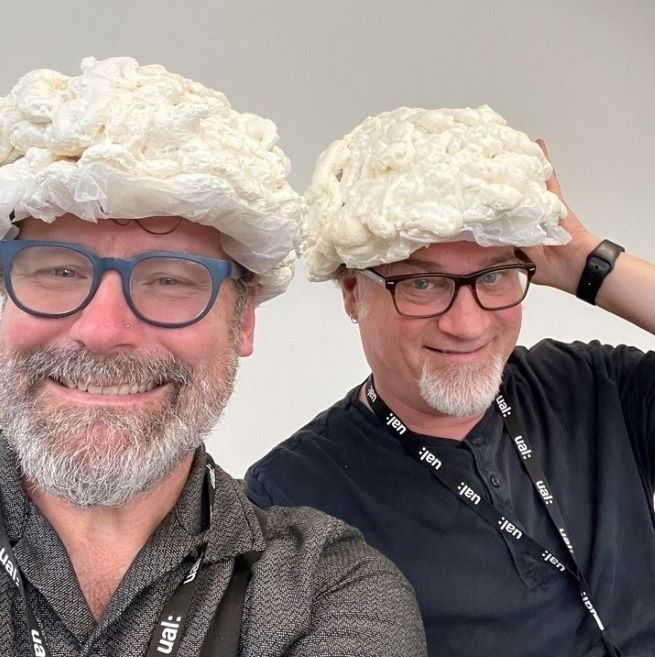 Authors:
Authors:
- Brock Craft, he/him, Associate Teaching Professor, Human Centered Design & Engineering, University of Washington, Seattle campus
- Tyler Fox, Associate Teaching Professor, Human Centered Design & Engineering, University of Washington, Seattle campus
Project Question
We think grading is problematic and challenging for both learners and teachers. Too often, it creates a checklist mentality, competition among students, and distills learning outcomes into a single metric. We are interested in the question: how might we help students focus on what they are learning, and how, as a core component to our teaching practice? In response to this question, we have been using assessment practices that focus student attention on their learning rather than on their grades by changing our grading practices to negotiating final grades.
Context
We have been using this Negotiated Grading model with MS students in Human Centered Design & Engineering, a professionally-oriented degree program. Our courses are primarily project-based engineering and design courses taught in a studio environment. While our students are engineering students, their undergraduate backgrounds are highly interdisciplinary, thus requiring us to teach individuals with varying levels of expertise and skill.
Methods
Our approach enlists strategies described by Blum et al., with the aim of centering the students’ agency in determining what they have learned as a basis to argue for a desired grade. We do this through three key strategies: qualitative feedback, reflection and negotiation. Students receive significant feedback and critique on each assignment. This is supported with regular reflective assignments that ask students to articulate what they are learning and how they are learning throughout the quarter. At the end of the course, students synthesize their reflections, course work, and feedback to articulate what they have learned and what grade they deserve, which is negotiated with the instructor.
Impact/Assessment
We have found that this practice:
- De-emphasizes grades as the sole representation of how learning is demonstrated. Grades are limited because they reduce the complex nuances of learning to a single quantitative value.
- Supports metacognitive thinking by asking students to articulate what they have learned and what activities supported that learning.
- Accounts for the nuances of students’ learning and allows them to highlight their achievements as they see them – rather than as the instructor interprets them.
- Helps instructors assess students at varying levels of skill and expertise by focusing on qualitative assessment and feedback.
- Helps students to think about process (of learning) over product (class artifacts).
Our approach has yielded a better account of what and how students learn over the quarter. In particular, it is easy for instructors to identify how students connect their learning activities back to the course learning objectives. When students explicate their self-conceptions of learning through specific examples from their own work they are able to connect learning and activities. At the same time, the instructor is able to evaluate students’ self-assessments of their own progress and compare it to their own judgments about students’ learning and progression. All of this is the foundation of a targeted dialogue that surfaces student learning experiences for both parties.
Application
We believe Negotiated Grading can be extremely effective in a wide range of disciplines. Project-based and studio courses that already rely on critique are prime candidates for this style of grading. It is particularly effective for graduate students, who are very focused on the value of what they are learning and its applicability to their professional lives.
Additional Resources
It’s worth mentioning that this approach is extremely rewarding for instructors (as well as students). The conversations help instructors understand their own pedagogy through the collective wisdom of students. You are able to see the impact of your work in student outcomes. We believe that these conversations and self-assessments make the grading process more enjoyable than ever before.